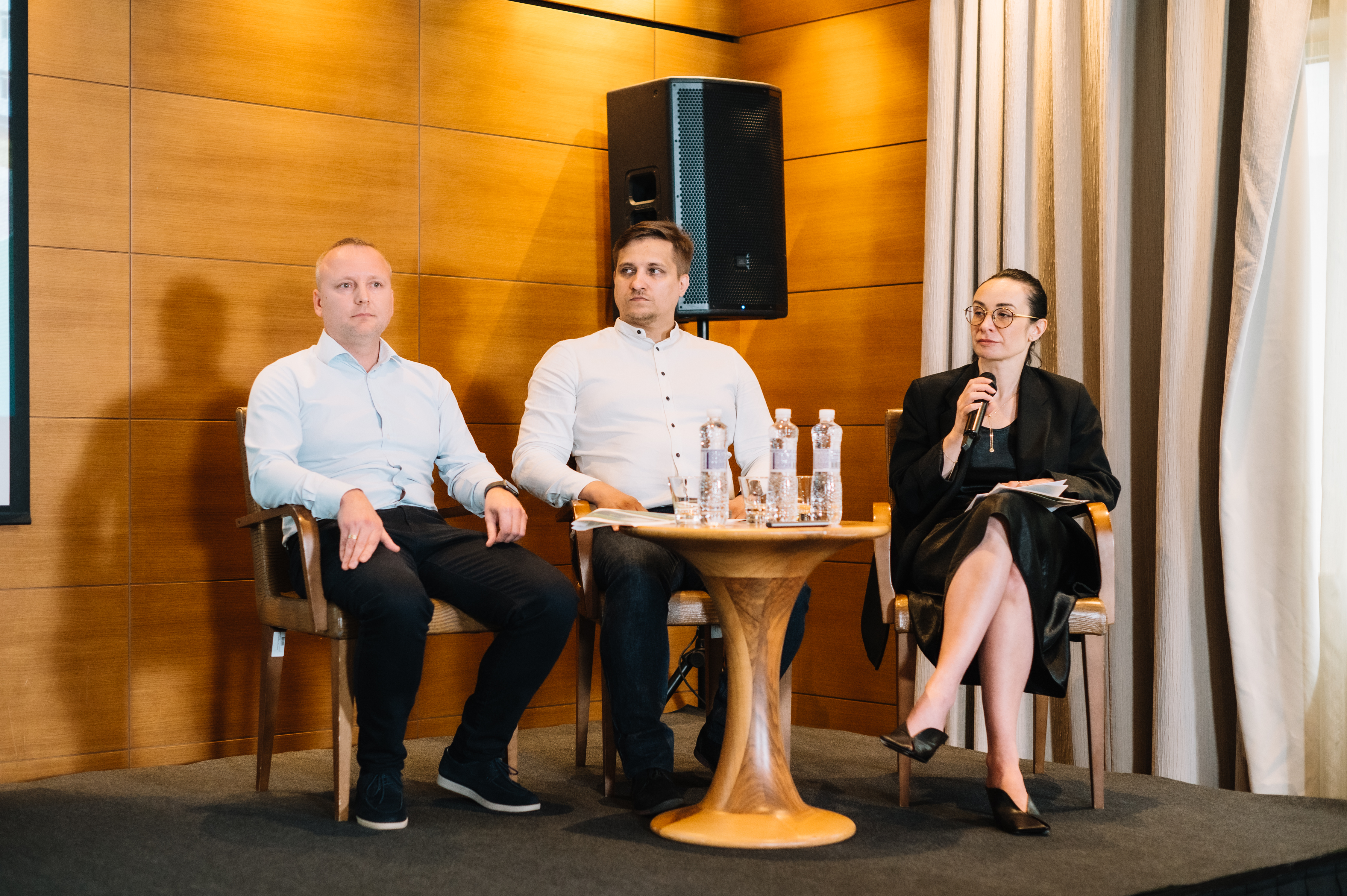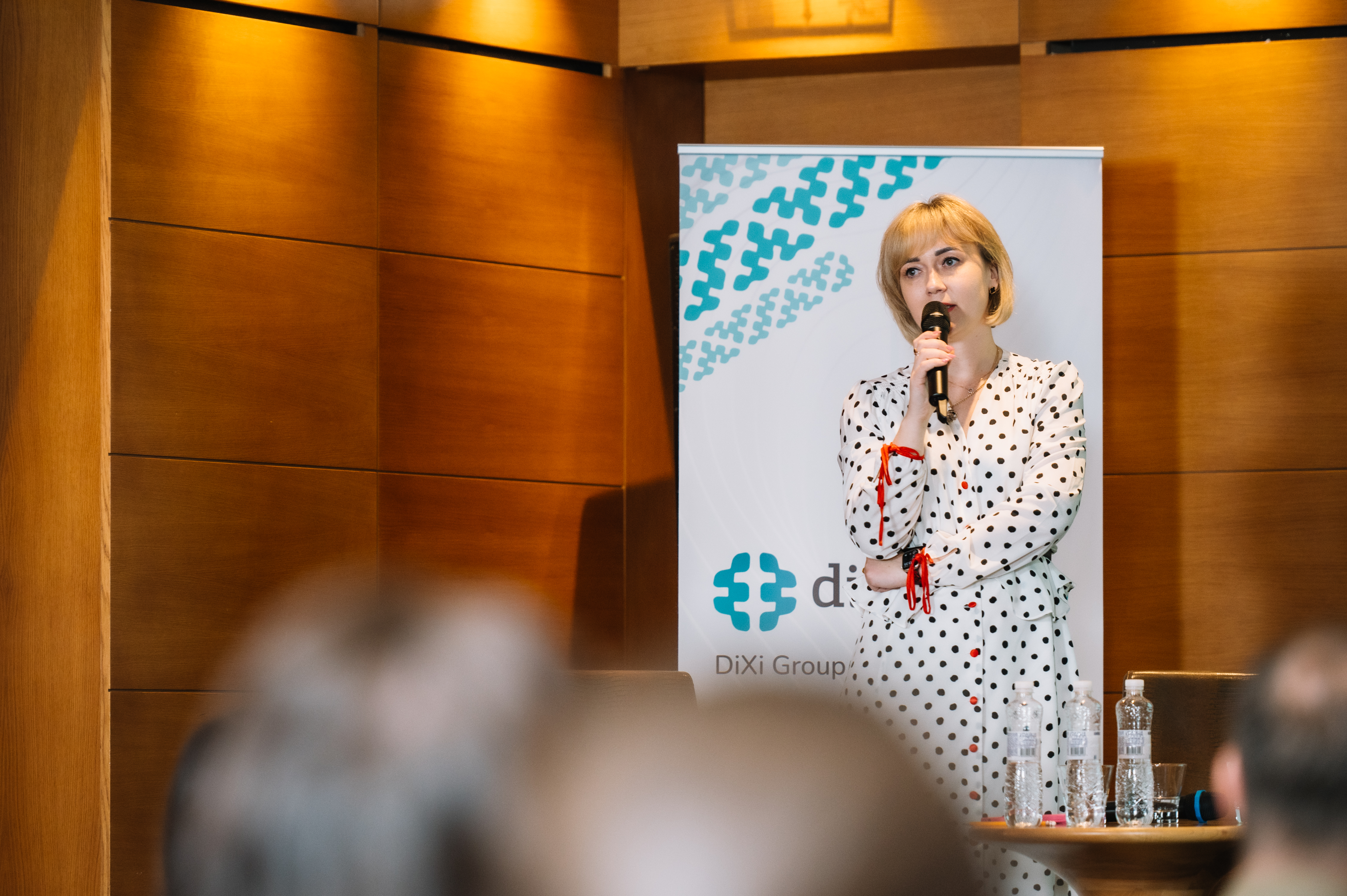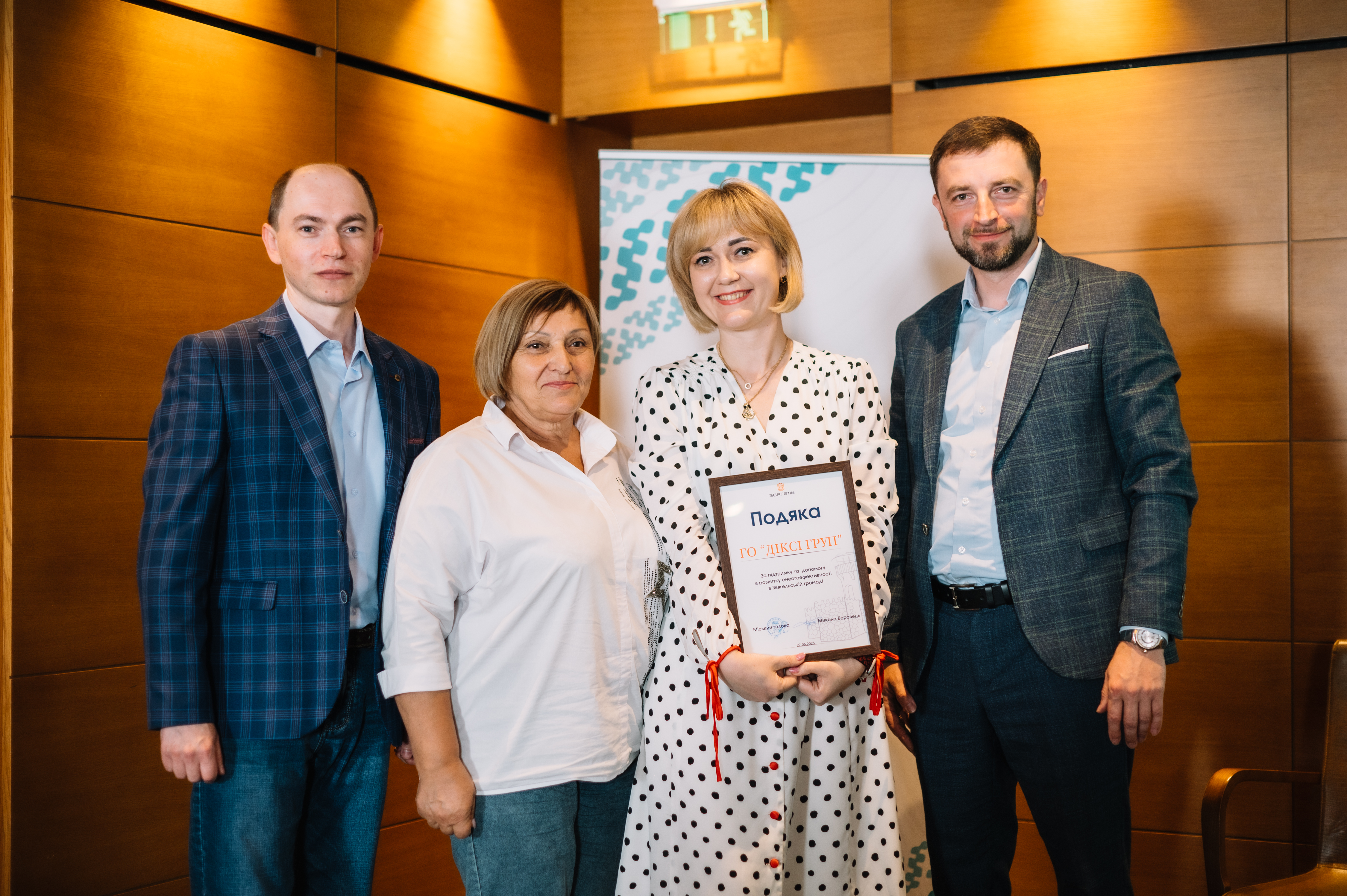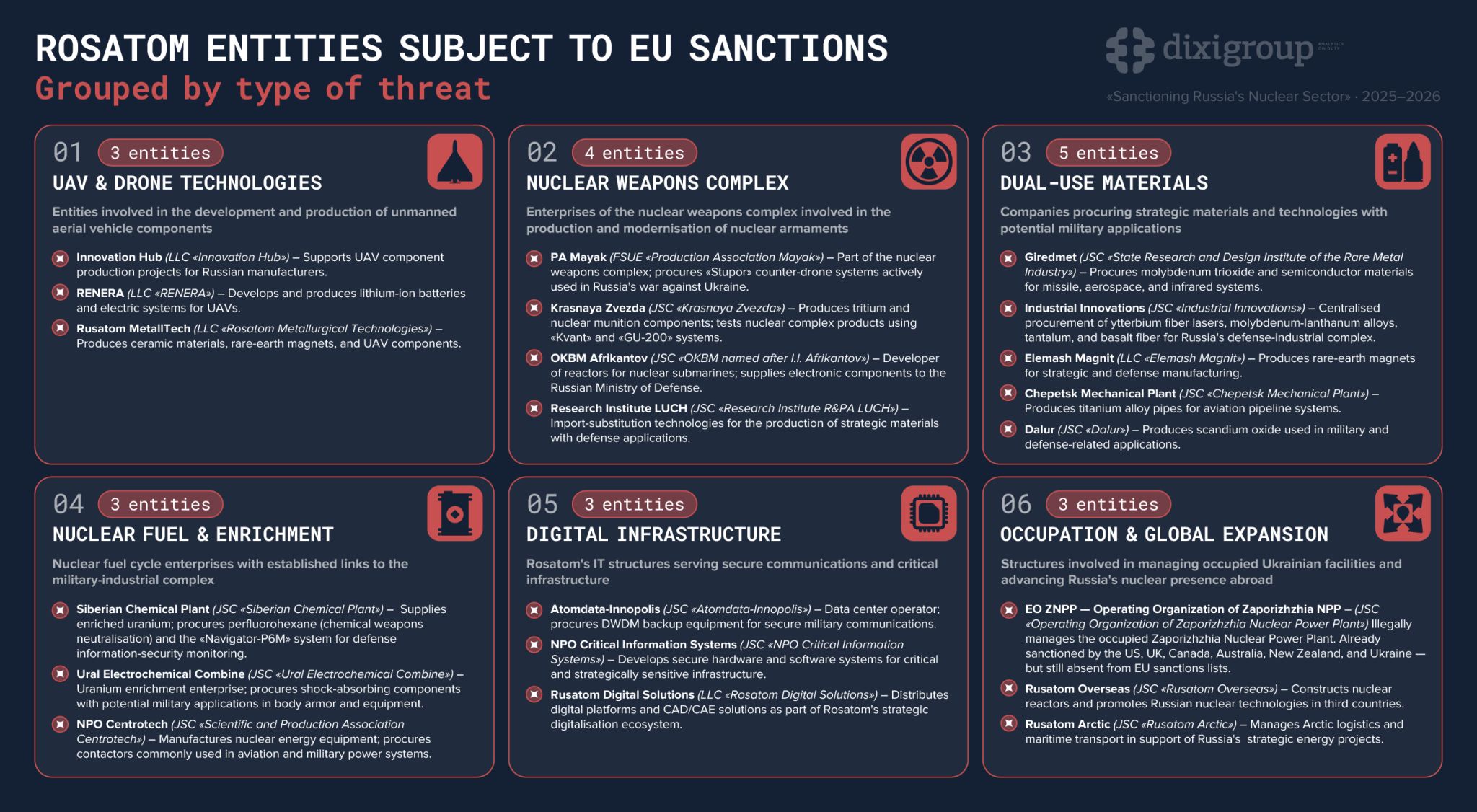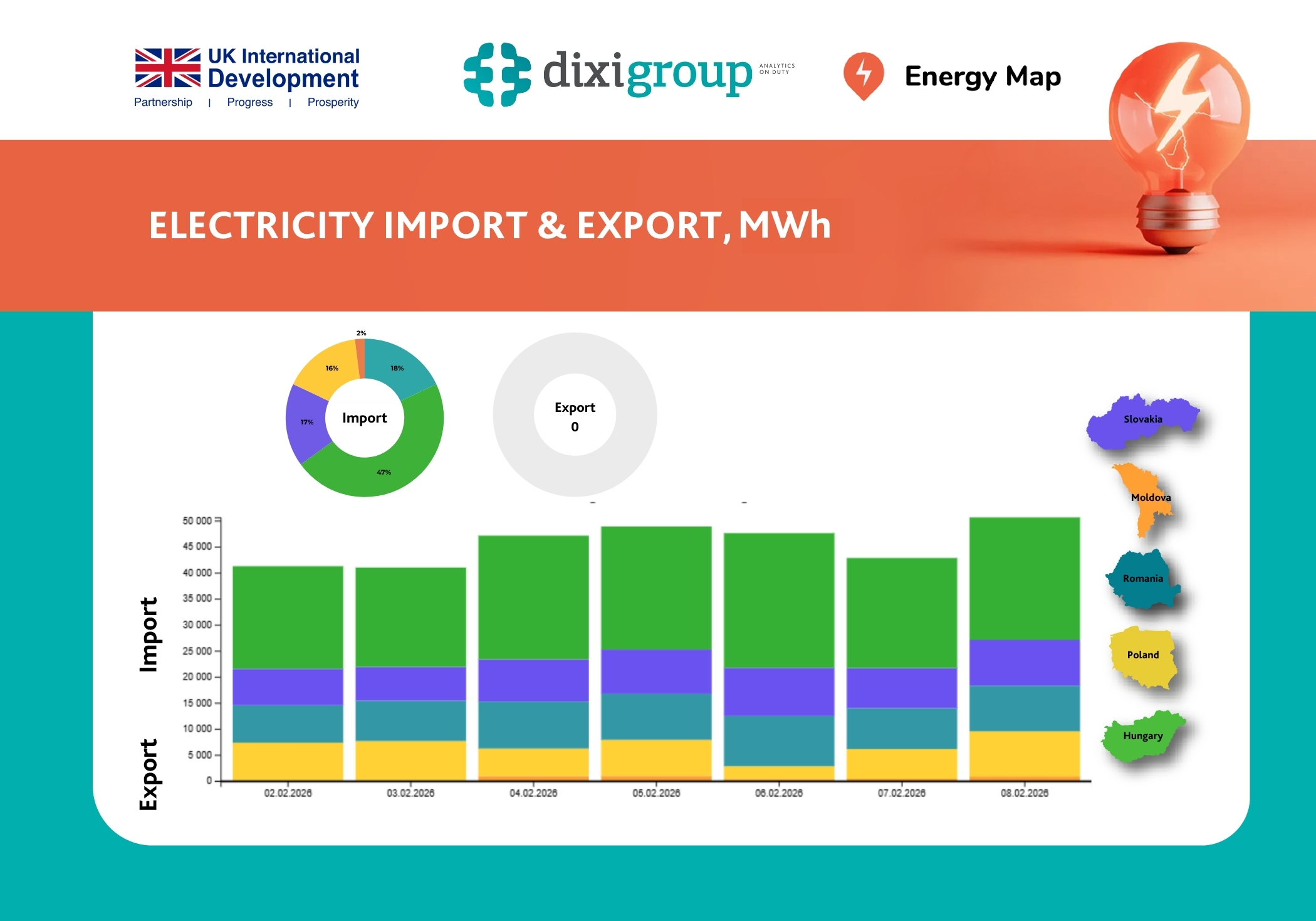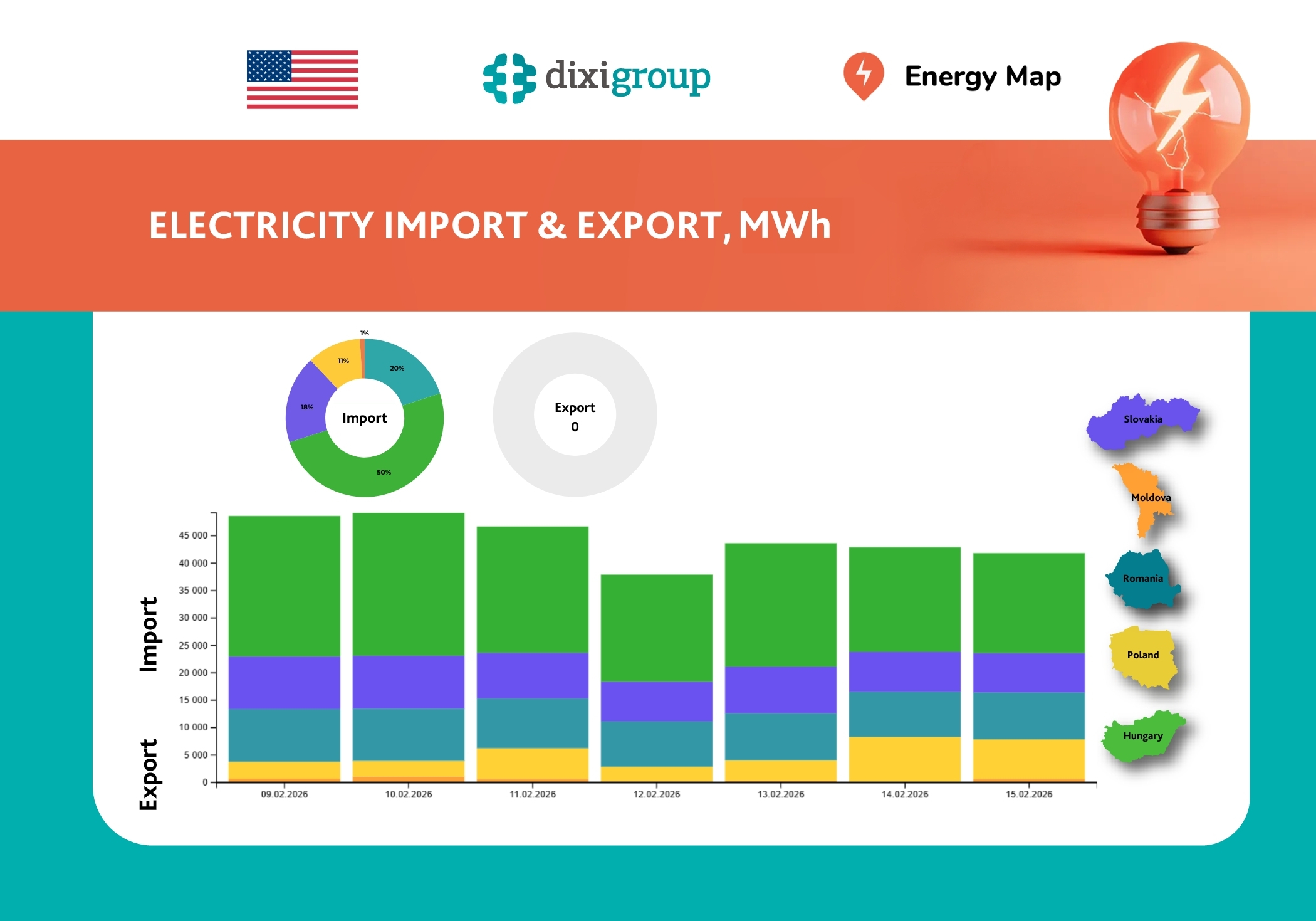On June 27, as part of the event “Strengthening the Energy Resilience of Communities: Results of the Project on the Development of Municipal Energy Plans,” the team of the DiXi Group think tank shared the results of its work with communities.

Over the almost two-year project implementation period, DiXi Group experts have helped ten Ukrainian communities develop and approve Municipal Energy Plans (MEPs), and another ten prepare preliminary technical and economic feasibility studies (feasibility studies) for energy efficiency measures included in the MEPs. In total, 16 Ukrainian communities participated in the project.
“When we started working on this project, our key task was to develop a Municipal Energy Plan in each participating community so that it would be a real working document and would launch other energy efficiency initiatives on the ground”, said Olena Pavlenko, President of the DiXi Group think tank.

DiXi Group’s project to develop municipal energy plans was implemented with the support of the Dutch Government under the MATRA program. “The essence of this program is to support initiatives that expand the capacity of Ukrainian communities, particularly in the energy sector. The Kingdom of the Netherlands is committed to investing in Ukraine’s resilience and strength,” stated Robert Dekker, Head of Political Department at the Embassy of the Netherlands in Ukraine. He also emphasized that the Netherlands is ready to continue to provide Ukraine with comprehensive support – financial, political and military – and to help in the reconstruction of Ukraine for as long as it takes.
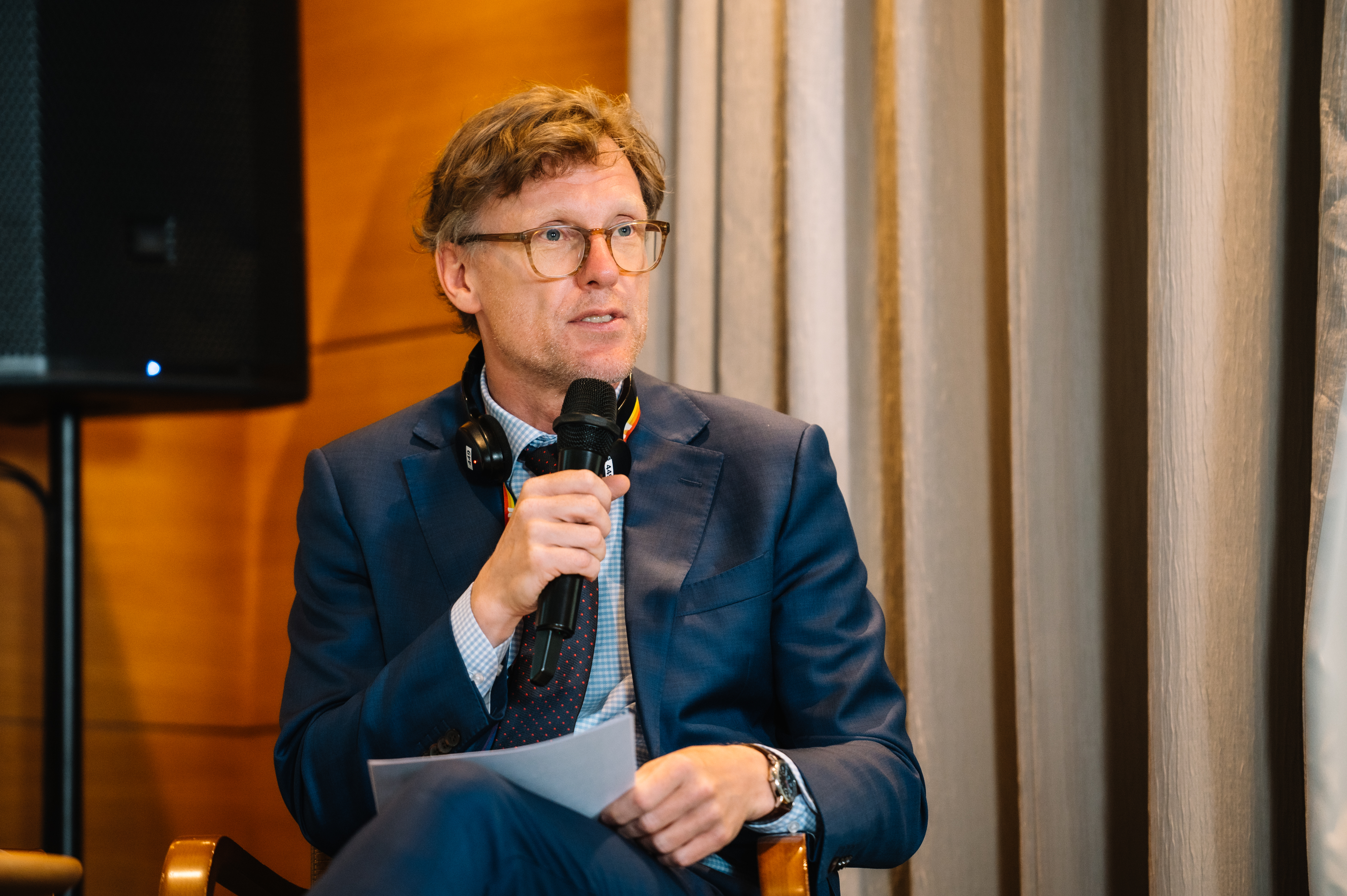


Comprehensive approach as a key to the success of energy efficiency changes
The main focus of the DiXi Group team in working on the project was a comprehensive approach. The think tank’s team and involved experts not only helped communities develop their local energy plans, but also enhanced the expert skills of community representatives, emphasized the need for institutional development of experts who improve community energy efficiency, and turned the MEP from a legal requirement into a “roadmap” to community energy independence. For this purpose, educational and scientific-methodological approaches were used, such as seminars, trainings, individual and group consultations on preparing the MEP. Offline training sessions were also held in Kyiv and Chortkiv, and a study tour to the Netherlands took place. Representatives of the communities had the opportunity to see firsthand the approaches of implementing energy efficiency measures that work not only in Ukraine but also in Europe, and to evaluate solutions that can be applied to solve the problems they face in our country.
The application of a comprehensive approach during the project implementation allowed to achieve not only quantitative but also qualitative results.
“We are glad that we were able to help communities become more united, more strategic and more confident in implementing energy efficiency measures on the ground. We see that such a comprehensive model – training, visits, mentoring – is not only effective, but also has the potential to be scaled up and further implemented in other initiatives, as this approach is already used by other organizations,” explained Viktoriia Kovalenko, General Manager of Sustainable Development at DiXi Group.



An experience that needs to be scaled up
The project on the development of municipal energy plans implemented by DiXi Group is also of strategic importance for the Ukrainian energy system in the context of the war, as we not only worked on the development and approval of the document, but also promoted the need for the availability of MEPs in communities. Decentralization, reduced use of fossil fuels, and the development of renewable energy sources will contribute to the energy sustainability of communities and, as a result, the entire country’s energy system. In addition, it will result in large savings for the state budget, as on average, more than UAH 100 billion is spent annually from the country’s budget to pay for energy resources. This is all possible when strategic approaches are in place, so the implementation of the MEPs will free up funds that can be used for other needs: strengthening our country’s defense capabilities, social and humanitarian sectors, etc.
“We, as the Ministry, are ready to adapt to the challenges that DiXi Group and communities faced during the development of MEPs, and we are ready to adapt these methodologies to make them work better and be more effective in ensuring community resilience. We are proud of partners such as DiXi Group think tank and want this initiative to be extended to the whole of Ukraine,” shared Maryna Denysiuk, Deputy Minister for Communities and Territories Development of Ukraine.



“This project is the first step in implementing the Energy Efficiency First principle enshrined in the updated European legislation. This is the beginning of the formation of an energy management system that will reduce energy consumption and increase the resilience of the energy system,” emphasized Anna Zamazeyeva, Head of the State Agency on Energy Efficiency and Energy Saving of Ukraine.



Representatives of the communities that participated in the project noted its key value for them – comprehensiveness and practicality. They understand that this document will not remain “on the shelf for the sake of ticking off a box” and are ready for its further implementation. It is thanks to such consistent actions – from writing the MEP to developing feasibility studies for the measures listed in the MEP – that communities are now moving in the right direction to achieve real results in improving their energy efficiency. “When planning energy efficiency measures, we tried, firstly, to approach each measure in such a way that it was as comprehensive as possible, as this is what provides the highest economy. Secondly, we tried to adopt the best Ukrainian and European approaches to energy efficiency, because when planning renovation and construction, we want to rely on and implement the best and most effective experience,” explained Yuriy Stalnychenko, Secretary of the Mena City Council.
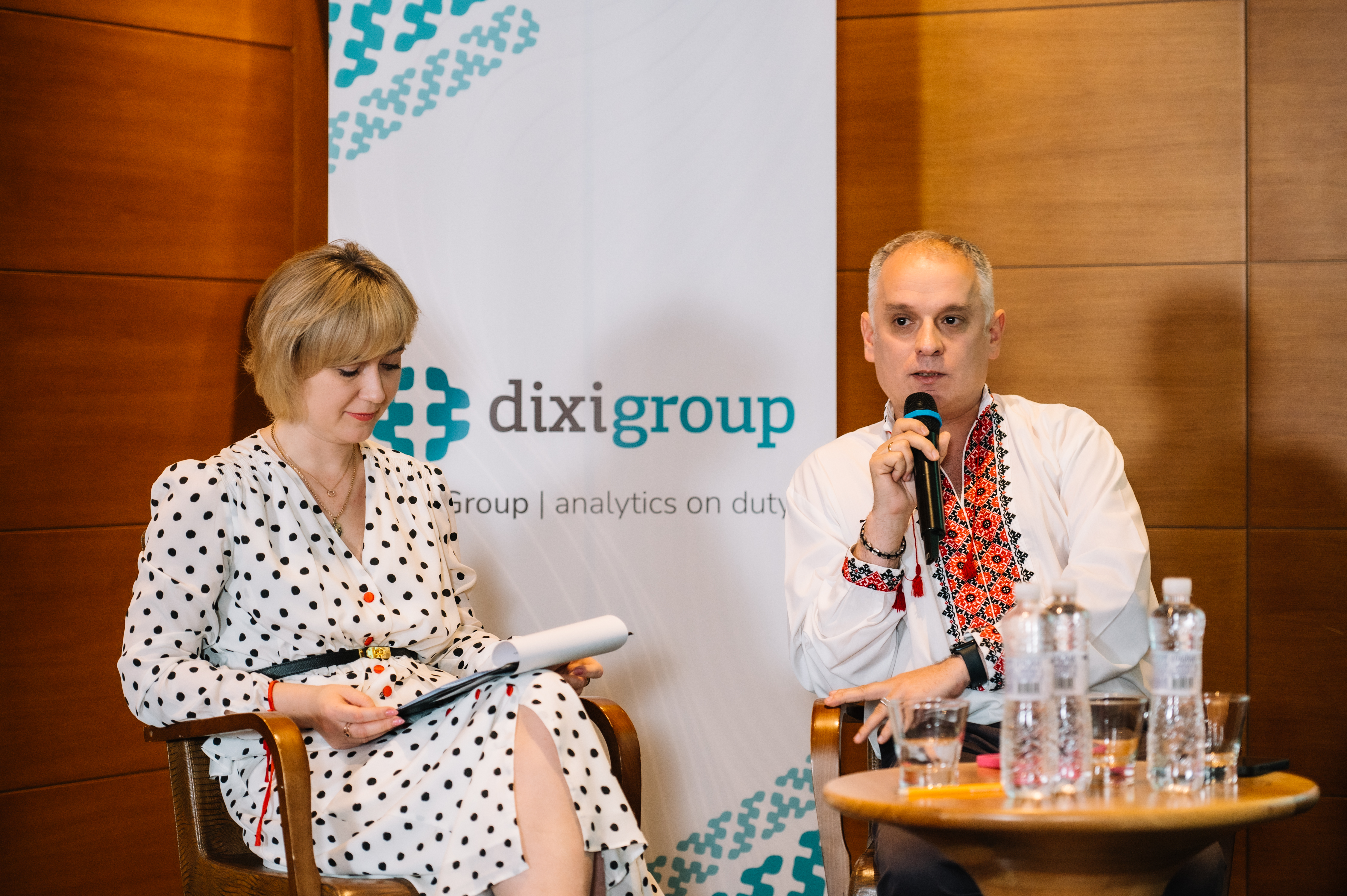


How to find funding?
The event paid special attention to the issues of finding financing for the implementation of energy efficiency measures developed and planned within the framework of the MEPs. In particular, financial experts advised community representatives to pay attention to the lending mechanism, as savings from energy efficiency measures can be a source of loan repayment. “A loan is not a debt pit. It is an investment in the future. If the project is calculated, it pays off,” claims Olesia Mishchenko, the Chairman of the Board of the Ukrainian Decarbonization Fund.
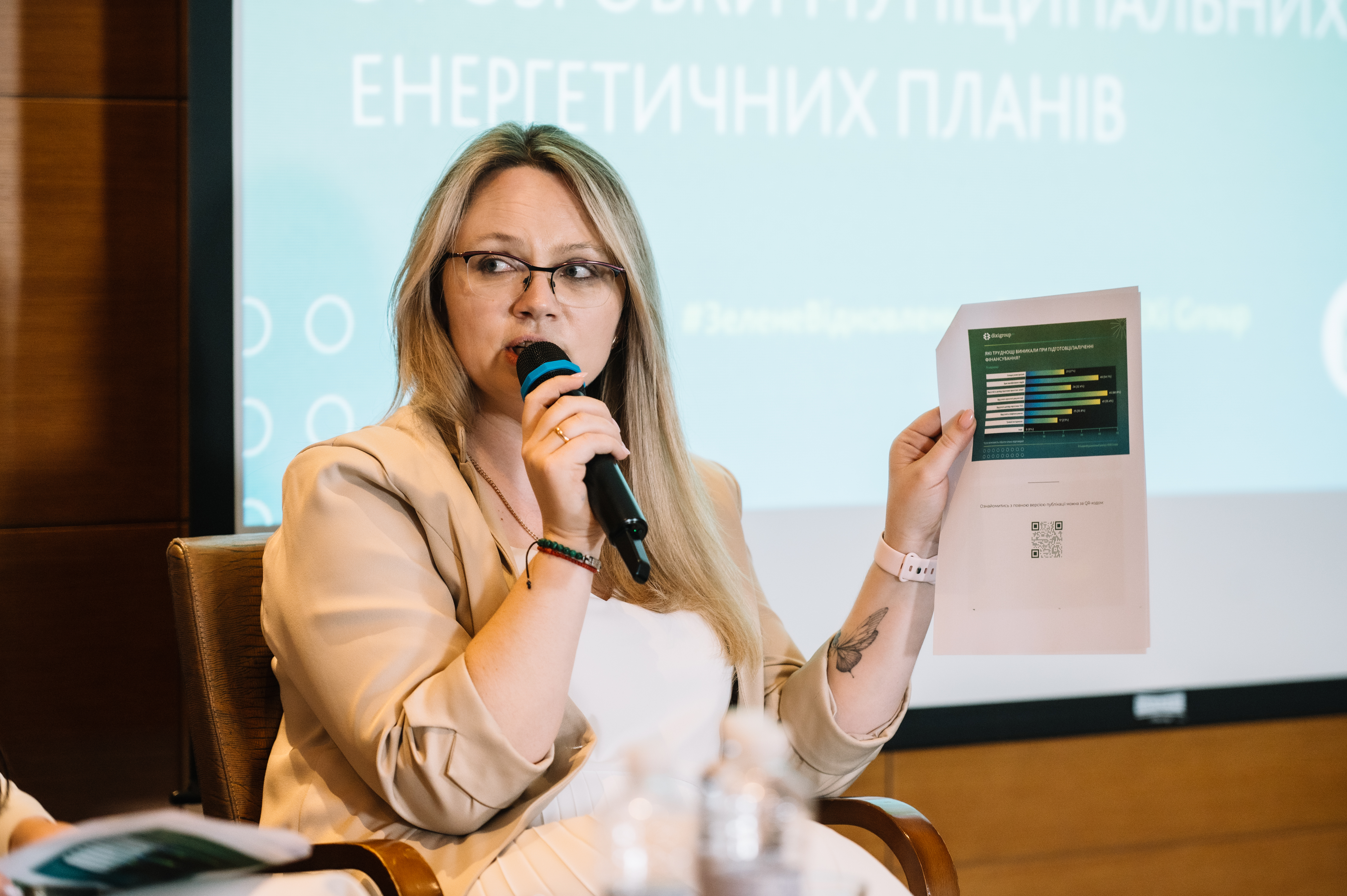


The country’s leading financial institutions have also expressed their readiness to cooperate and support communities. “Currently, we see fear, and because of this, the reluctance of communities to take out loans. Therefore, in this issue, we see a common obligation of us as banks to communicate and take interest in communities, building effective communication on the ground,” noted Olena Zubchenko, Deputy Chairman of the Management Board, Sense Bank.



The panel discussions were also attended by: Yulia Rybak, UNDP Ukraine Green Energy Recovery Programme Manager; Anton Orekhov, First Deputy Mayor of Zlatopil City Council; Victoria Baltser, Secretary of Voznesensk City Council; Mykhailo Shyanov, Head of Energy Management Department of Poltava City Council; Yuriy Savych, representative of Zvyahel City Council; Oleksiy Savin, Director of Sustainable Banking Department, UKRGASBANK; Yevhen Myachyn, Director of Corporate Business Development and Support Department, Oschadbank; Vadym Lytvyn, Head of the Association of Energy Auditors of Ukraine.









